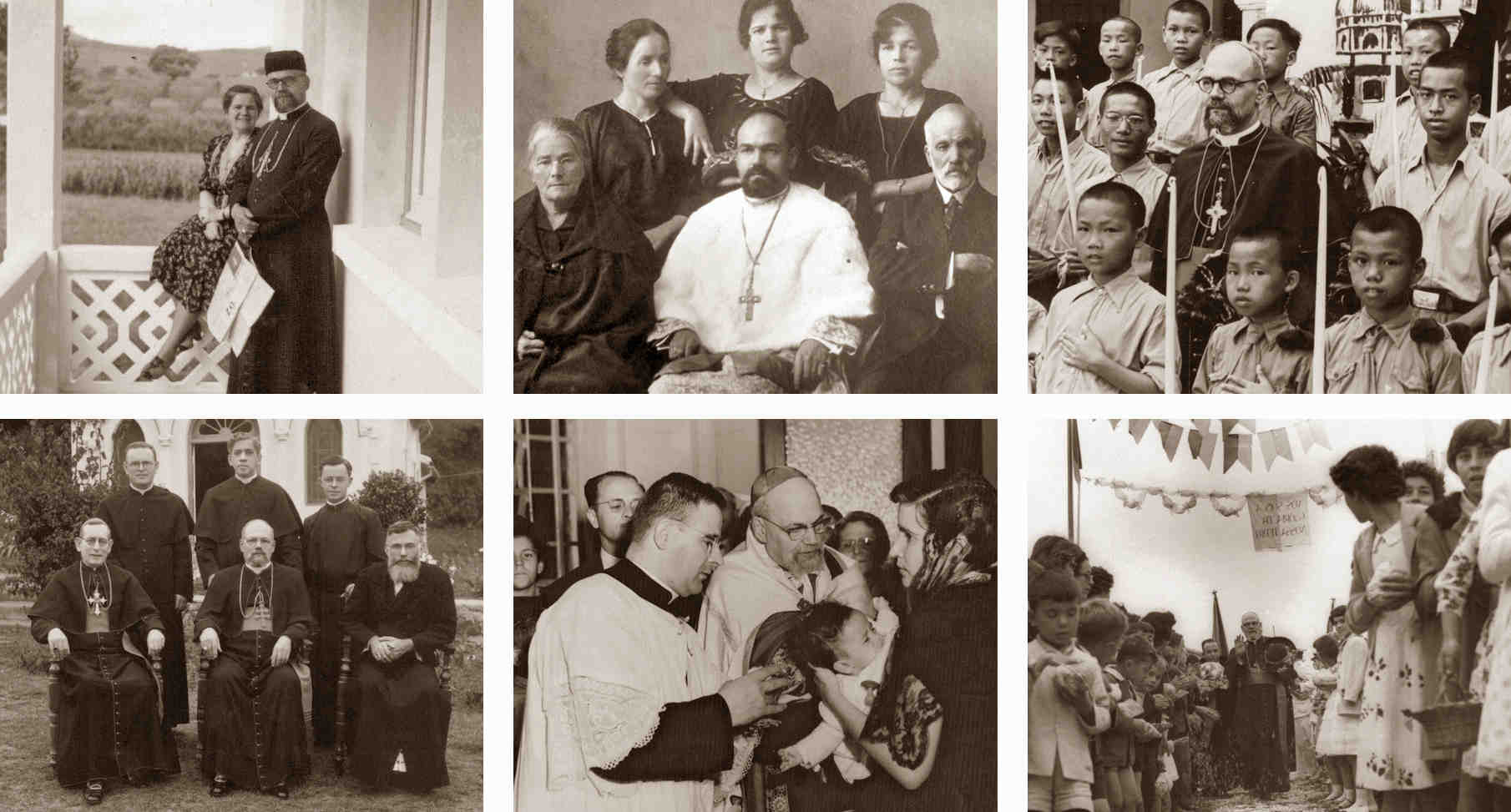D. José da Costa Nunes is considered the greatest son of the parish of Candelária because he carried the name of this parish to different parts of the world. He was born on March 15th 1880 and he was baptized on the 19th of that month. He is the third of José da Costa Nunes and Francisca Felizarda Goulart's nine children.
This distinguished figure belonged to a family whose Christianity was pure and authentic and this may have influenced José da Costa Nunes to follow the ecclesiastic life. Once his vocation had been ensured, he passed his secondary school entrance examination and entered the Seminary in Angra in 1893, where he continued his studies. Eight years later he received his first tonsure and minor orders. As a student he always distinguished himself on both intellectual and moral levels and was therefore invited by Dr. João Paulino de Azevedo e Castro – when he was appointed Bishop of Macau – to be his private secretary. D. José da Costa Nunes arrived in Macau on June 4th 1902. The following year he concluded his studies and was ordained into the priesthood. On June 1904 he departed to the missions of Malacca and Singapore.
In fact, many years later, the Cardinal openly confessed that, after being reluctant at first, he only agreed to go to Macau with the aim of gaining experience before returning to Europe and joining the Gregorian University as a teacher, his ultimate purpose. However, while thinking of staying only two years in Macau, he remained there for approximately half a century.
[COSTA, Susana Goulart. D. José da Costa Nunes (1880-1976): um cardeal no Oriente. Lisboa: Universidade Católica Portuguesa, Centro de Estudos de História Religiosa, 2007-2008, p. 268]
It is thought that he took on his missionary role in such a way that he was not able to leave the Orient. There his priestly career evolved rapidly and in 1906 he was appointed Vicar General of the Diocese of Macau. The following year he was appointed Governor of the Bishopric. At the beginning of the republican regime, D. José da Costa Nunes took on a leading role and was elected Vicar Capitular in 1918. Two years later he became Bishop of Macau, receiving his episcopal ordination in the main church of the city of Horta, Faial, in 1921.
He returned to Macau in 1922, where he headed the diocese for eighteen years. Then, in 1940, he was appointed Archbishop of the Metropolitan, Primacy and Patriarchal Cathedral of Goa, taking the title of Primate of the Orient and Patriarch of the East Indies.
His work in evangelizing Portuguese India was immense and of varied nature with education assuming a clearly important role. He created multiple colleges, schools, seminaries and Christian institutions, such as the "Missionary Congregation of S. Francisco Xavier do Pilar de Goa", founded in 1942.
[COSTA, Susana Goulart. D. José da Costa Nunes (1880-1976): um cardeal no Oriente. Lisboa: Universidade Católica Portuguesa, Centro de Estudos de História Religiosa, 2007-2008, p. 275]
His commitment and dedication gained recognition at the highest level, and in 1946 he was awarded the Grand Cross of the Order of the Empire by the Portuguese government, thus demonstrating the importance of his patronage. In 1953 his work was again acknowledged and he received public recognition being awarded the Grand Cross of the Order of Christ. Shortly after he was appointed Titular Archbishop of Odessus and Vice Chamberlain of the Holy Roman Church.
After 50 years of pastoral activity in the Orient, he resigned from his position in the Diocese and moved to Rome. Here he started the project he had conceived in his youth, not as a teacher, but defending the interests of faith, carrying out his duties in the Roman Curia for twenty-three years.
During his stay in the Orient, D. José never forgot his parish, helping its development and growth. In spite of the distance, he was always nostalgic about the Azores and his island. In a column published in the newspaper O Telégrafo, in 1924, he strongly stated "I’m an Azorean through and through". But his love for his land was evidenced by his major work in the parish: the Patronato Infantil da Casa de São José, which was given over to the Franciscan Hospitaller Sisters of the Immaculate Conception. It was the first preschool educational establishment on the island of Pico and one of the first in the Azores. For this purpose he donated his own house, in order to "perpetuate the memory of my beloved parents... and benefit the people of Candelária, among whom I am proud to have been born." The Casa de São José (St. Joseph) was inaugurated by the Cardinal on 30th August 1970.
After his death the people of Candelária continued to honor him. His remains were solemnly transferred to the chapel of the Church of Nossa Senhora das Candeias. His name will be immortalized and will remain in the memory of present and future generations most vividly, as the basic and secondary school of municipality of Madalena was named after him. The house where he was born was acquired and turned into a small museum and multidisciplinary area, in order to preserve the name of D. José da Costa Nunes, a man of humble origins who became a Cardinal.
